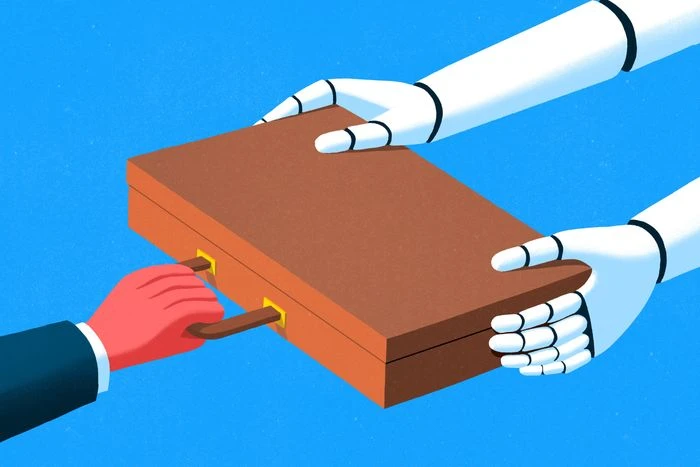As we stand on the brink of another technological revolution, anxiety about artificial intelligence (AI) replacing jobs is palpable across the global workforce. But is focusing solely on AI as a job killer the right angle to approach this phenomenon? This article seeks to uncover why this commonly asked question might, in fact, be the wrong one, and what we should be considering instead.
Contents
The Evolution of Work: Historical Perspective
Understanding Historical Paradigms
- The Industrial Revolution: A classical example where technology both destroyed and created jobs, fundamentally changing tasks and industries.
- The Information Age: Introduction of computers which initially caused fear similar to today’s AI scare but eventually led to the creation of new industries and job roles.
The Lesson
Technological advancement has perennially been a double-edged sword, reducing demand for certain skills while simultaneously creating previously inconceivable opportunities. Understanding this dynamic is crucial when discussing AI’s implications on future employment.
Redefining Productivity and Efficiency
AI Enhancing Human Capability
AI’s primary value lies not in replacing human workers but in augmenting human capabilities, making jobs more productive and, often, more fulfilling. Industries such as healthcare have seen AI-powered tools provide doctors with deeper insights into patient care, arguably enhancing the quality of the service.
Examples in Practice
- Healthcare: AI algorithms that analyze medical imaging faster and more accurately than humans.
- Automotive Industry: AI-driven analytics used in predictive maintenance can foresee machinery failures before they occur.
AI should be viewed as a tool that unlocks human potential, not one that locks away job opportunities.
Job Transformation Instead of Elimination
New Job Landscapes
With AI’s integration into the workforce, the structure of jobs will inevitably transform. However, history suggests that transformation does not equate to net job loss but to a shift in skills required.
Shifting Skills and Roles
- Data Analysts and Scientists: As data becomes a cornerstone of operational insight, roles that can leverage AI to interpret this data will grow.
- AI Maintenance and Development: As AI systems become more prevalent, the demand for professionals to maintain, improve, and innovate these systems increases.
Understanding the sectors that might experience growth can help in preparing for a future where AI is an integral job component.
Educational Imperatives
Training for Tomorrow
The question should not be if AI will replace jobs, but rather how can education systems evolve to prepare the forthcoming generations for an AI-enhanced world? Emphasis on STEM subjects, along with skills like problem-solving, creativity, and emotional intelligence, will be crucial.
Key Considerations
- Curriculum Changes: Incorporating AI understanding and ethics into educational syllabi.
- Lifelong Learning: Encouraging ongoing education to keep pace with technological advancements.
Conclusion
Instead of asking if AI will be a job killer, we should consider how it will transform jobs and how we can adapt to these changes. The key takeaway is preparation and adaptability. By focusing on evolving educational systems and understanding the potential of AI to augment human skills, society can harness AI’s benefits while mitigating its risks.
Call to Action
Start conversations in your community about the role of AI in future employment. Explore educational resources that can help adapt skills for an AI-integrated job environment. Remember, the goal is not just to survive the wave of AI but to ride it confidently into a prosperous future.
“AI should be viewed as a tool that unlocks human potential, not one that locks away job opportunities.”
Considering its multifaceted impact, embracing a proactive rather than reactive approach to AI in the workforce is crucial. By focusing on education and adaptability, we can ensure that AI serves as a catalyst for job transformation and not the cause of job termination.






